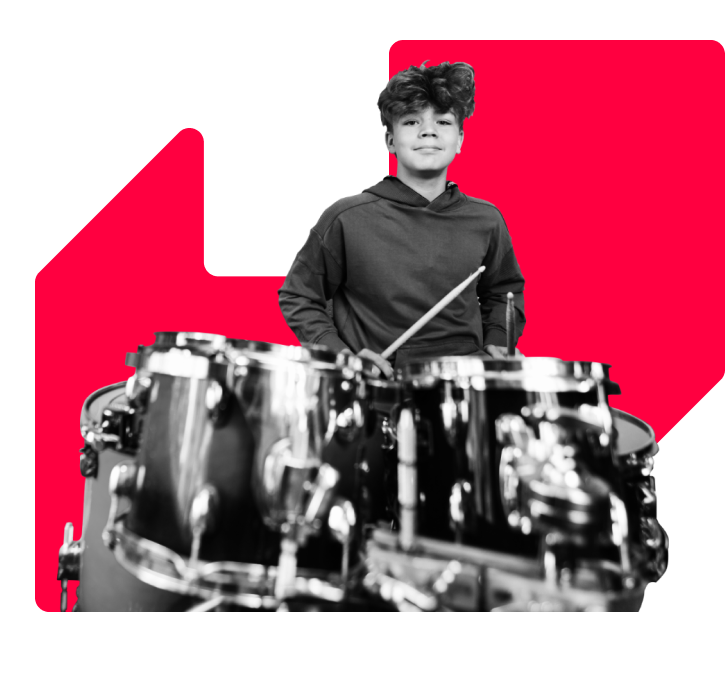The arts In Schools
Following the seminal 1982 report, a new 40th anniversary report – The Arts in Schools: Foundations for the Future – calls for arts subjects to be central to a rethink of England’s state education system.
Quicklinks

THE ARTS IN SCHOOLS: FOUNDATIONS FOR THE FUTURE
CLA has taken on all the resources produced through The Arts in Schools initiative. The Arts in Schools: Foundations for the Future calls on policymakers to ascribe greater value to the role of the Expressive Arts in schools as part of a rethink of England’s state education system.
The report reflects on policy developments over the four decades since The Arts in Schools: Principles, practice and provision, the influential 1982 Gulbenkian report which helped secure the place of the arts in the National Curriculum, and contributed to the development of a new ecosystem of education teams within cultural organisations. You can see the report summary here, together with a 40-year Timeline.
Based on extensive research, including a series of roundtable discussions chaired by education experts with school leaders, teachers, academics, arts educators and young people, the report finds that the arts are vital for young people’s intellectual and personal development, but are marginalised in today’s school system, which itself requires a major overhaul.
The Arts in Schools initiative has been funded by the Calouste Gulbenkian Foundation, delivered by A New Direction and was supported by the former Bridge organisation network during 2022/3.
You can access the report and all the project resources here:
- The Arts in Schools report
- Executive Summary of The Arts in Schools report
- The Arts in Schools 40-year Timeline
Blog series
To mark the publication of The Arts in Schools report, A New Direction commissioned a series of blogs on the report’s themes, and four on specific arts subjects in schools, in partnership with four arts subject associations. Read the blogs here:
Subject association blogs
Art & Design in Schools
Dance in Schools
Drama in Schools
Music in Schools
Responses to the report
A group of 13 young people from across England share their thoughts on the original Arts in Schools report, their experience of education, and what the future holds for the arts in schools. Young people respond to the report
See some other responses to the report below, including from Dame Alison Peacock (CEO, Chartered College of Teaching) and Geoff Barton (Association of School and College Leaders).
Think piece
In May 2022 the report’s authors published an initial think piece to set the context for the consultation and final report, and to consider how the conversation on arts education had developed over four decades. You can access the think piece here.
Call to action
The Arts in Schools: Foundations for the Future calls on policymakers to ascribe greater value to the role of the Expressive Arts in schools as part of a rethink of England’s state education system. The report finds that the arts provide evidenced positive outcomes for young people, but are marginalised in today’s school system, which itself requires a major overhaul.
The Arts in School report calls on:
Policy makers

Policy makers to reconsider the status of arts in schools as part of a major re-evaluation of the English education system.
Schools

Schools to embrace the arts, and to value their unique contribution to children and young people’s education, development and well-being, and to adopt the five principles enabling a school to become arts-rich:
Breadth: exposure to all art forms and a breadth of work and experiences
Balance: between knowledge and skills
Inclusion: embracing the needs of all children
Relevance: reflective of the world in which children live and will work
Learner voice: listening to children and young people
Arts organisations

Arts organisations to ensure their resources can be made easily available and relevant to schools (including online), and responsive to their needs, including by opening up opportunities through work experiences, apprenticeships and paid internships.
For arts organisations with learning teams please share the report with your CEO, artistic director and senior leadership team, and with the board and its chair. We know that when learning has a place at senior management and board level and is more embedded within the organisation then its work it strengthened.
Education sector

Please share The Arts in Schools report and its ten recommendations (or the Executive Summary) with colleagues, school and MAT leaders, governors and other contacts, and on social media (download our social media pack and shareable assets from the launch of the report).
Parents / Carers

For parents with children in school please consider sharing the report’s findings with the chair of governors, the headteacher and, if relevant, the multi-academy trust leadership.
Social media

There is a downloadable presentation that you can use to talk about the report in your setting.
More about the report …
Funded by Calouste Gulbenkian Foundation and with support from the network of former Bridge organisations, the roundtables, case studies and report have been facilitated by A New Direction, London’s leading not-for-profit organisation generating opportunities for children and young people to develop their creativity.
The report’s findings was presented online to an invited audience of arts and education leaders on 30 March 2023. Speakers included: Dame Alison Peacock, Chief Executive of the Chartered College of Teaching; David Bryan CBE, Founder & Director of Xtend (UK) Ltd and Chair of Art Council England’s London Area Council; and Geoff Barton, General Secretary of the Association of School and College Leaders, who called the report “utterly comprehensive, authoritative, bleak, but also agenda-setting”.



